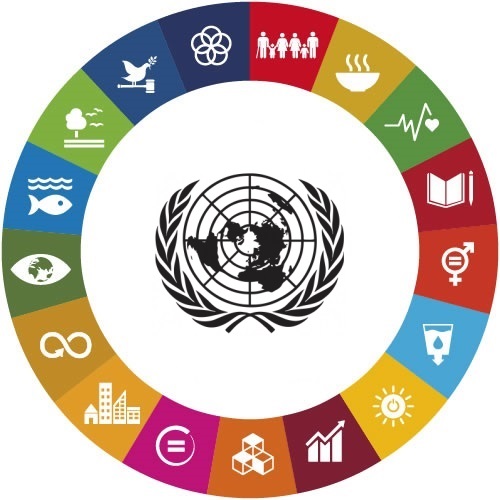With the aim of picking up the pace towards achieving the Sustainable Development Goals set for 2030, the SDG Summit was held at the United Nations headquarters in New York on 18 and 19 September, in parallel with the high-level week of the General Assembly.
At the midpoint of the 2030 Agenda, the Summit aimed to conduct a comprehensive review of the status of the 17 Sustainable Development Goals (SDGs) and how to address the multiple and interconnected crises facing the world.
The look of the interventions was to suggest a common political direction for transformative and accelerating action towards the 2030 target year.
At the halfway point, the promise of “leaving no one behind”, as the slogan of this phase states, is in serious jeopardy, it was pointed out in the run-up to the Summit. For the first time in decades, development progress is being held back by the combined effects of climate catastrophes, conflict, economic recession and the lingering effects of the COVID-19 crisis.
According to the UN website, the Summit is a call to action to regain momentum, commitment and effective leadership to bring about fundamental changes in terms of solidarity, financing and action to get back on a path towards ending poverty, creating just societies and restoring a balanced relationship with the natural world.
The World Sustainable Development Report 2023, prepared by an independent panel of scientists, and the special 2023 edition of the Secretary-General’s SDG Progress Report were launched at the Summit.
The concrete actions proposed are condensed into 12 high-impact initiatives aimed at demonstrating that transformative progress is possible despite challenging global circumstances and mobilising greater leadership and investment to achieve progress at scale by 2030.
The initiatives are:
– Energy Compacts: Raising ambition to meet SDG7.
– Nature for Economic Transformation: Harnessing the power of biodiversity and nature to drive equitable and equitable economic progress
– Transforming food systems: Transforming food systems to achieve a sustainable world without hunger
– Transforming Education: Learning to build a better future for all
– Global Accelerator: Global accelerator of employment and social protection for just transitions
– Public Digital Infrastructure: Scaling up inclusive and open digital ecosystems for the SDGs
– SDG Stimulus: Scaling up affordable long-term financing for the SDGs
– Transforming global trade: Paradigm shift to drive economic development
– Driving key transitions and achieving the SDGs by 2030
– Building public sector capacity for the future
– The power of data: Unlocking the data dividend for the SDGs
– Spotlight Initiative: Eliminating Violence against Women and Girls
Following the Sustainable Development Goals Summit and taking advantage of the presence of many high-level officials from all regions of the world, the Climate Ambition Summit has been convened on the 20th, calling on all leaders from governments, business, cities and regions, civil society and financial institutions to present credible, serious and innovative climate actions and nature-based solutions that make significant progress and respond to the urgency of the climate crisis.
At the same time, the High-Level Dialogue on Financing for Development will take place, which aims to strengthen the implementation of the Addis Ababa Action Agenda (a UN framework for mobilising resources to achieve the SDGs), as well as to identify progress and new challenges and trigger further action.
If the work of the various committees and representations as well as the General Secretariat in preparation for these important conclaves has been carried out with much effort and dedication, the concrete scope of the measures will depend, as always in history, on the decision-making power of the people themselves in the direction of events.
As long as economic concentration continues to exist, the multilateral system will find it difficult to overcome this stumbling block. It is time to put the cat out of the bag, less noise and more nuts, the people demand.






